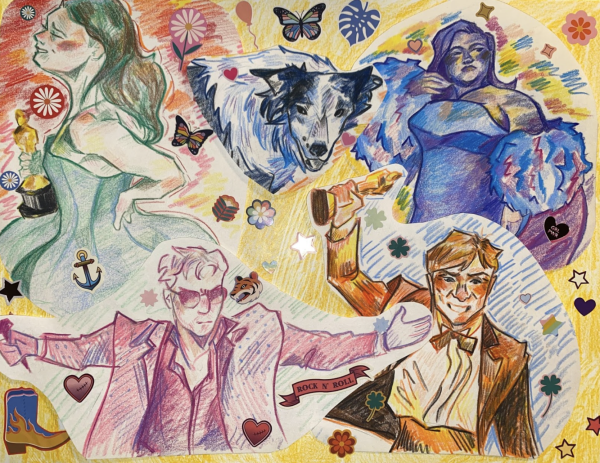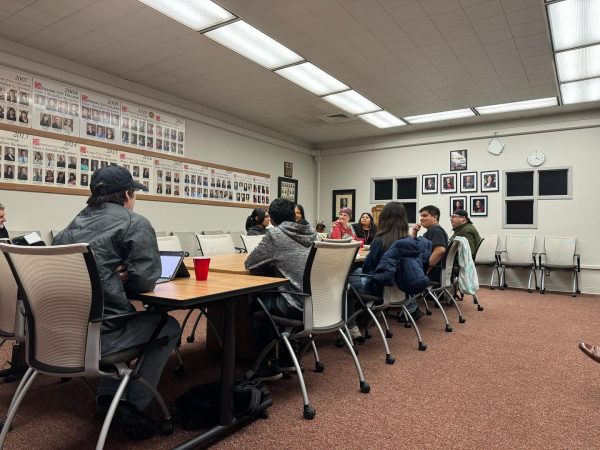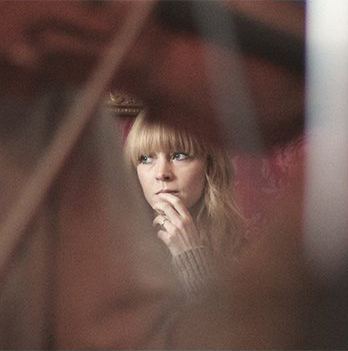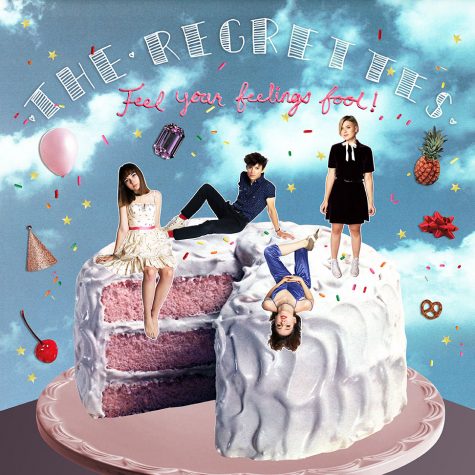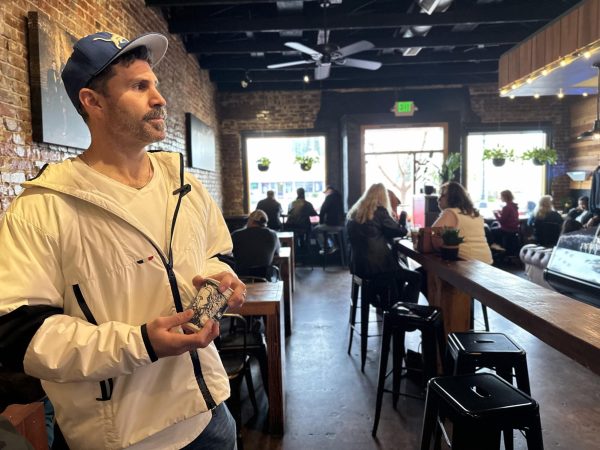The Obscurity Zeitgeist: Love, Separation and ‘Modus Vivendi’
Photo by: Courtesy of @070 Shake on Instagram
070 Shake’s new album “Modus Vivendi” discusses themes of love and separation in relationships and at large.
It has been a very long time since an album has dominated my listening as long as “Modus Vivendi” has.
Since the debut album from 070 Shake hit streaming services mid-January, it has satisfied every musical craving. Amidst personal playlists stocked with modern alternative, hip-hop and general pop, the genre-transcendent album kept drifting forward as something rooted in all three but innovative all the same.
“And then I start to wonder/Why can’t I feel it with another?”
So many young culturally impactful (read: not always commercially influential) artists are forsaking genre for their own sound. Billie Eilish, one of those rare cases of large-scale Taylor Swift or Drake level successes, has publicly come out against the idea of genre echoing the trailblazers and trendsetters that came before her.
Spotify’s “POLLEN” playlist describes itself as “genre-less” and it boasts nearly 825,000 followers.
Even Eilish is simply following the blueprint set out before her by other young cult artists. Sects of Twitter were afire Sunday with anger or frustration with Eilish winning certain awards over Lana Del Rey who users claimed was snubbed along with Ariana Grande for Album of the Year.
While Lana and artists like BROCKHAMPTON, Lorde, Marina Diamandis, Jaden Smith and Tyler, the Creator have brought so much to the table in regards to hip-hop or pop and alternative music in general (i.e. alternative being relatively non-mainstream), 070 Shake interpolates so much of their work at the root of the intersection between hip-hop and pop.
It would be irresponsible and incorrect to omit Kanye as a major influence in Shake’s work.
“Modus Vivendi” was released under GOOD Music, Kanye’s 2004 music label (who handed the reins off to Pusha T in 2015) and his fingerprints are all over the album. Shake was even featured on “Ghost Town” and “Violent Crimes” from Kanye’s 2018 album “ye.”
Kanye has made fabulous overproduced happy celebratory music well, but his true talent lies in his darker albums like “Late Registration,” “808s and Heartbreaks” and “My Beautiful Dark Twisted Family” where Kanye explores using his voice as a standalone instrument.
From the beginning, Shake wails like her idol and she is unafraid to explore the space of using her voice as fundamentally as she uses a drum or a violin. Her lamentations and soliloquies form a genuinely vulnerable and surprisingly heartfelt singular chorus.
She takes cues from her predecessors and influences to make something uniquely her own, combining genre, sound and lyrics to produce something immensely powerful.
Whether it’s the bass-boosted “Come Around” or “The Pines” or the acoustic introduction and saxophone ending on “Morrow” or the dreamy trance-like “Guilty Conscience,” “Rocketship” or “Terminal B,” Shake puts together a full and rounded sound at once reminiscent of other works and wholly unique.
“Said, oh, I’ll never know/How long I’ll stay, how far I’ll go”
However minimal, Shake’s lyrics drive the album forward through thematic and sometimes forlorn or unrequited thoughts on love. Every track on the list is a love song in one form or another either wanting to have more love, hating someone who loves you, or dealing with the loss or corruption of a love.
Instead of rapping or singing over the beat, Shake uses the beat to accentuate her lyrics. On the album each song stands out, but they easily blend together in one dissonant, yet cohesive harmony.
Even further, she isn’t afraid to use ideas and themes put forth by other artists.
Genius says Shake interpolates Nirvana’s “Where Did You Sleep Last Night?” a song ending the famous “MTV Unplugged in New York” concert album in November 1994 following frontman Kurt Cobain’s death.
“It’s Forever,” the prelude to “Rocketship” was originally performed by a 1970s Philidelphia soul group called The Ebonys. The latter track samples part of the excerpt used as an introduction.
Shake uses her own words though when discussing her battle with depression and self-medication on the respective songs “Morrow” and “Microdosing.”
The first speaks about passive suicidal thoughts and the wish to act recklessly when faced with the betrayal of a loved one, while the second evokes feelings of toxicity and it talks about an attempt to distance ourselves from virulent people not only physically, but mentally and emotionally.
Even though a central theme of the album’s lyrics and sound is love in all forms, another large presence is the idea of fracture and separation either willingly or unwillingly.
“Modus Vivendi” is a Latin term describing a relationship between at least two people where they may agree or disagree, but coexist nonetheless. The track “Divorce” is the most emblematic of that idea.
The song drudges up thoughts and feelings of a fight or heated argument and two opposing sides having to go on living in a loveless marriage because it’s beneficial one way or another.
Shake masterfully puts lyrics in places where they may contain dual meanings. She prods the listener to question whether or not she’s speaking strictly about an interpersonal relationship or our society at large. Is she speaking about a lover or a sibling or parent or child or coworker or friend?
“My mind won’t let me rest, voice in my head”
From the beginning melancholic sorrowful first track to the bittersweet eclectic final track, Shake’s music grabs the listener by the throat and takes them on a journey through a simultaneously intimate and detached dystopia where feelings are thrown into the void and people are made to go on unfeeling and uncaring.
The lyrics burrow in the mind and restlessly fester until they grow into an unignorable presence like any unhealthy relationship while the sound combines new and old, discordance and harmony, and genre transcendent music.
Put quite plainly, “Modus Vivendi” is the best album you’re not listening to.

John Bruce is a 19-year-old communications major writing for the Rampage as Entertainment editor. He was born and raised in Visalia, but recently moved...




